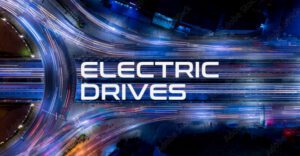- The UK government is considering implementing a pay per mile tax for electric vehicles, as a record number of new car buyers make the switch away from petrol and diesel towards EVs, with the associated revenue from fuel duty (which currently stands at 52.95p per litre) dropping.
- However, questions remain unanswered on exactly how the scheme would work, and what vehicles it would apply to.
- Many figures within the automotive industry have already voiced their concerns at the proposals during what is a crucial time for the electric car transition.
Could EVs start being liable for pay per mile taxes?
The news, as reported by the BBC, comes ahead of the Chancellor’s autumn budget, and comes after rumours that have been bubbling away for a while. Total revenue from the 52.95p per litre fuel duty is at its lowest level since 2006/2007, and this drop can be directly attributed to record rates of EV adoption, with declines in fuel duty revenue being seen on a yearly basis.
After the vehicle excise duty exemption for electric vehicles was dropped earlier this year, the vast majority of electric cars registered on UK cars are now already subject to a flat vehicle excise duty rate of £195 per year – with this new proposed pay per mile rule set to come as an additional cost on top of that. Following a consultation process, the scheme is set to be implemented in 2028.
Whilst the newly introduced Electric Car Grant has helped reduce the price of many new electric car models and driven forward adoption, many believe that this new proposal is at odds with the government’s position to encourage people to make the switch.
As an example, if the proposal was implemented, someone who drives an sub-£40,000 new EV 10,000 miles a year would be subject to the £195 VED rate, plus another £300 in pay per mile charges, totalling £495 a year. For those who have bought a new EV costing over £40,000, they will also be subject to the £410 expensive car supplement, payable for the first five years of the car’s life.
Even with the proposed changes, however, electric cars will still remain much cheaper to run than their ICE counterparts – particularly for those able to benefit from cheaper domestic charging, and smart EV charging tariffs. However, for those relying on public charging, it could potentially be a different story. If these proposals are implemented, expect the EV industry’s calls for public charging VAT to be brought in line with domestic energy VAT to get even stronger.
How is the industry reacting to the new proposals?
Vicky Edmonds, CEO of EVA England, commented:
“This is the wrong time to bring in further costs for EV drivers. Our survey data shows that at least half of drivers are still finding the upfront purchase costs of these vehicles to be too high, and that half of EV drivers without driveways are finding their vehicles more expensive to run than their former petrol and diesel cars. These challenges to switching to electric must be addressed urgently, and before any scheme that suggests additional costs is considered.”
Edmund King, President of The AA, said:
“Whilst we acknowledge the Treasury is losing fuel duty revenue as drivers go electric, the government has to tread carefully unless their actions slow down the transition to EVs.
The ZEV mandate for 28 per cent of new car sales to be zero-emission this year will not be met, as sales are running at just 22 per cent. We need to see the detail of this proposal to ascertain whether these new taxes will be equitable, or a poll tax on wheels.
We need to see the detail of this proposal to ascertain whether these new taxes will be equitable or a poll tax on wheels.”


